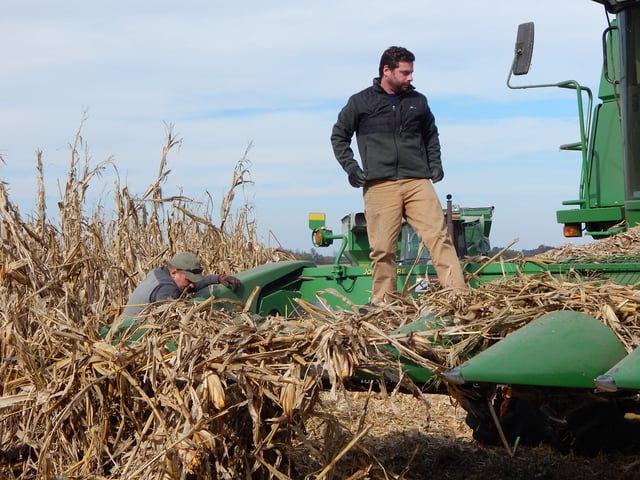Many people may assume that agriculture in general is exempt from OSHA standards. The truth is agriculture is not exempt from OSHA. However, there is a small farms exemption. Understanding the exemption could be vital to your operation. Before we get into the exemption, lets first examine the General Duty Clause as it sets up the framework for understanding who is and who isn’t covered.

General Duty Clause
OSHA’s General Duty Clause, Section 5(a)(1) requires each employer furnish a place of employment free from recognized hazards that are causing or likely to cause death or serious physical harm to employees and employers must comply with OSHA safety and health standards.
In addition, it also says each employee shall comply with occupational safety and health standards and rules, regulations and order issued pursuant to this Act which are applicable to his own actions and conduct. Therefore, there is accountability by employer and employee. The general duty provisions can be used by OSHA only where there is not standard that applies to a particular hazard.
Appropriations Act
Now let’s examine the exemption. The Appropriations Act exempts small farming operations from the enforcement of all rules, regulations, standards or orders under the Occupational Safety and Health Act. The farming operation is exempt from OSHA activities if it:
- Employs 10 or fewer employees currently and at all times during the last 12 months; and
- Has not had an active temporary labor camp during the preceding 12 months.
Note: Family members of farm employers are not counted when determining the number of employees.
Three Issues to Consider
- Family Members
Be careful when it comes to counting “family members” as it is not clearly defined. Some farms may incorrectly believe that they have fewer than 10 employees based on an incorrect assumption that certain family members are not counted as employees. If family members mean only “immediate family members,” than uncles, aunts, nephews, nieces, cousins and grandchildren may be considered when calculating the number of employees for purposes of the small farm exemption.
- Type of Business
If your farming operation is a corporation or a limited liability company, OSHA may consider all family members. When establishing your number of employees, you can consult with Art Buchanan of the Office of General Industry and Agriculture Enforcement at 202-693-1850 (OSHA).
OSHA defines “farming operation” as any operation involved in growing or harvesting of crops, the raising of livestock or poultry, or related activities conducted by a farmer on sites such as farms, ranches, orchards, dairy farms or similar farming operations.
- Multiple Businesses
On July 29, 2014, OSHA issued a “Policy Clarification on OSHA’s Enforcement Authority at Small Farms.” If an employer performs activities on a small farm that are not related to farming operations and are not necessarily to gain economic value from products produced on the farm, those activities are not exempt from OSHA enforcement. To ensure consistent compliance, review the link above.
Summary
Although OSHA regulations cover all farms, OSHA will currently not enforce farms with 10 or fewer employees (make sure you understand the issues around this definition above). In the court of law, OSHA rules and regulations may be used to identify safe and unsafe conditions on the farm. In addition, OSHA maintains its position that small farms are obligated to comply with OSHA standards. Remember, the owner of a farm holds a legal responsibility for everyone's safety.



